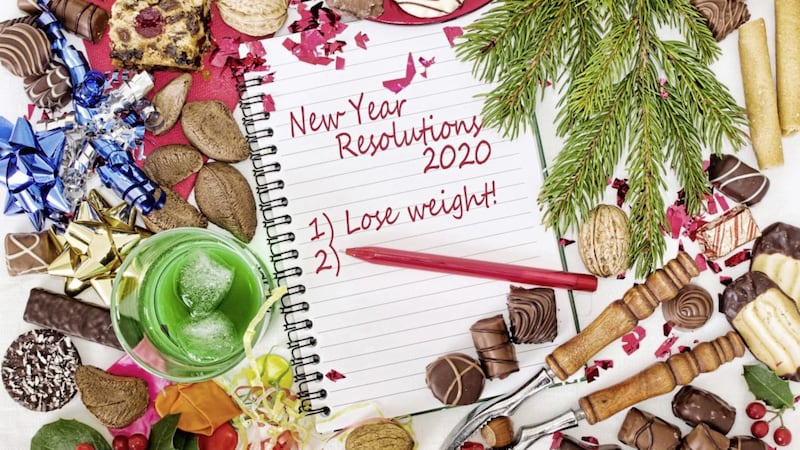IT’S traditional to enter into the New Year with a host of resolutions. Typically they cover things like: I’m definitely going to get fit, I’m going to start eating healthy, I’m not going to drink so much alcohol or I’m definitely never dancing naked on tables in public again. Yada-yada-yada.
And we will start 2020, all guns blazing, full of vim and vigour, only to be found sitting on the sofa, halfway through a Snickers and packet of crisps, in front of the TV by February 1st, muttering ‘I’ll start next Monday’. End of resolution.
Most of our resolutions fail within the first month. Why? Because we don’t put any thought into them (half the time we are on to our fourth beer when we think them up in the first place). We don’t plan properly. We don’t set proper targets and a route to success. We don’t measure. We don’t figure out if they are actually realistic, or clarify just what do we really need to do to achieve them.
And the simple truth is: no goal is ever achieved without a strategy. Without targets and milestones, planning and thought. Want to lose weight? Then set a target, work out how much you need to lose per week. Plan your meals and calorie intake. Set dates in the diary for physical activity. Record what you do and review it regularly. We all know what SMART (specific, measurable, achievable, relevant and time-bound) targets are; but do we ever set them for New Year resolutions?
At work we come to the end of the year tired and trying to use up vacation time. ‘Never doing that again’ we say. But do we plan for 2020? Do we set dates aside, book early and schedule work around it? Taking a break from work is essential to your wellbeing. It gives you time to unwind, spend time with loved ones and appreciate what you actually work all those hours for (there is a reason why the Working Time Directive is classified under Health & Safety) yet we rarely plan properly.
Do we perhaps make some vague promise about becoming a better version of ourselves? How often though do we actually sit down and map out our professional development plans for the year? Do we identify the gaps in our professional knowledge, analyse our weaknesses and make a plan to address these? Do we strategically think about our career path?
And in case all that sounds like too much hard work; our goals do not have to be herculean. It only takes 15 minutes to watch a Ted talk for example. You can read a page in a book every two to three minutes, so even at five pages a day you could have a couple of books read per year. Small steps can still take you to where you want to be.
So when it comes to the new year and your 2020 resolutions, whether personal or professional, ask yourself the following questions: do I know exactly what I am trying to achieve? Can I measure how I am progressing and set milestones? Have I made these realistic and achievable? Are they really relevant to my life and will they genuinely be of benefit to me? Have I established a time scale within which to get them done?
If you haven’t done this, then it’s more than likely you will just drift off and forget about them. And given these are often communicated to friends and family (or even worse via social media) in a blaze of glory heading toward midnight on December 31, isn’t it better to plan appropriately and succeed, rather than wing it and fail publicly?
:: Barry Shannon (bshannon@cayan.com) is director of human resources at TSYS Cayan in Belfast







